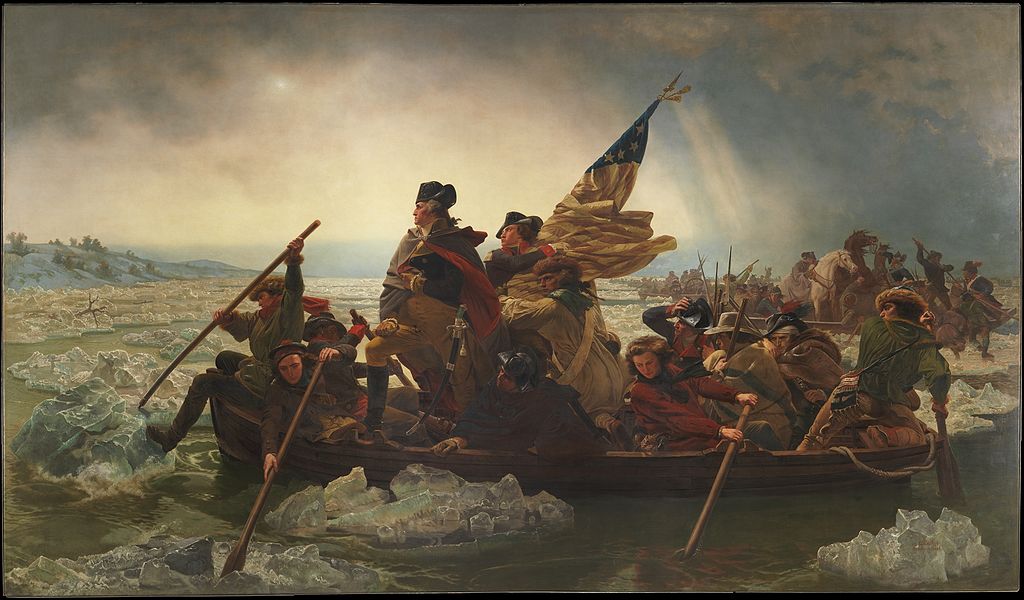In late 1776, the fortunes of the Patriots fighting the American Revolution were at their nadir. It had been a year of defeat. Washington’s main Continental Army had been beaten on Long Island and Manhattan and forced to retreat across New Jersey with the British hoard on his heels. Battle casualties, the surrender of outposts, and desertions had reduced his army from around 19,000 men before the Battle of New York to less than 6,000 troops. Another American army, under Benedict Arnold, had been driven from Canada, after failing to capture Quebec the preceding winter. Thomas Paine called the period, “…the times which try men’s souls”. Congress, having done little to support the cause since declaring independence, fled Philadelphia to Baltimore, where they continued to do little.

To the British, Washington commanded a defeated army, and if he could not be trapped against the Delaware River separating New Jersey and Pennsylvania, he would be the following spring. But Washington had a weapon the British failed to fully appreciate. It had already rescued his army from entrapment against a water barrier, and it would do so again at the end of 1776. To maximize its value, as Washington reached and crossed the Delaware, he had his men seize all boats and bring them to the Pennsylvania side, where his troops could finally rest. On New Year’s Day, 1777, the enlistments of most of his demoralized men would expire. He first needed to keep his army intact, and then find a way to use it before the Revolution ended ignominiously. Here is how Washington faced the greatest crisis of his military career and turned it into his finest hour.
1. Washington lost his second-in-command during the retreat from New York

Major General Charles Lee was a former British officer. He had served in the British Army in North America, Portugal, Poland, and Ireland before migrating to Virginia in 1775. He traveled extensively through the colonies during that pivotal year, ingratiating himself with Patriot leaders. By the time of the disastrous defeat on Long Island, he commanded a wing of the Continental Army and served as Washington’s second in command. During the retreat across New Jersey Lee moved slowly, despite Washington’s urgings for him to link up with the main body of the army. Instead, Lee moved at a leisurely pace, at some distance from his troops. He was in a tavern in Basking Ridge, New Jersey, writing a letter criticizing Washington to General Horatio Gates, when he was captured by British cavalry on December 12, 1776.
Lee believed that he, rather than Washington, should be in command of the Continental Army, and had written numerous letters complaining of Washington’s lack of ability. “…a certain great man is most damnably deficient,” he wrote in the letter he was composing when he was captured. Washington assigned General John Sullivan to command Lee’s former troops, and the new commander followed the orders of his superior with dispatch. Losing Lee proved to be a boon for the Continental Army, and he remained in British custody until 1778. After returning to the Patriot cause that year he soon demonstrated his penchant for insubordination had not changed. In Sullivan, Washington found an obedient and skilled subordinate, one who would prove vital to the success of Washington’s plans for the last days of 1776.

